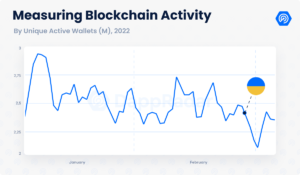Agency Reveals $250,000 Settlement With bZx And Its Founders
The Commodity Futures Trading Commission (CFTC) has brought an enforcement action which runs counter to some of the fundamental tenets of open finance.
The U.S. regulator has filed charges against a decentralized autonomous organization (DAO) called Ooki DAO, alleging that the organization had engaged in activities that only regulated entities called futures commission merchants (FCM) can perform.
The CFTC also alleges that Ooki DAO failed to adopt a customer identification program which is required of FCMs. The CFTC led its statement by levelling the same charges against bZeroX, a margin trading and lending project incorporated in the U.S., and disclosed a $250,000 settlement with the project and its founders, Tom Bean and Kyle Kistner.
“Margined, leveraged, or financed digital asset trading offered to retail U.S. customers must occur on properly registered and regulated exchanges in accordance with all applicable laws and regulations,” reads a prepared statement by the CFTC’s acting director of enforcement Gretchen Lowe. “These requirements apply equally to entities with more traditional business structures as well as to DAOs.”
Fundamentally, the CFTC’s actions suggest that calling an entity a DAO, or invoking token-based voting as part of an organization’s decision-making process, doesn’t necessarily protect that entity from the legal responsibilities of a traditionally regulated institution.
Regulatory Overreach
Jake Chervinsky, the executive vice president and head of policy at the Blockchain Association, is critical of the absence of crypto-specific legislation developed by U.S. lawmakers. He’s calling it “the most egregious example of regulation by enforcement in the history of crypto.”
Chervinsky pointed to a dissenting statement issued by CFTC commissioner Summer Mersinger in response to the U.S. agency’s action.
“I cannot agree with the Commission’s approach of determining liability for DAO token holders based on their participation in governance voting for a number of reasons,” wrote Mersinger. The commissioner listed arbitrary definitions of what Ooki DAO is, as well as setting policy based on new standards and definitions never articulated by the CFTC, as reasons for her dissent.
Collins Belton, managing partner at Brookstone P.C., a boutique law firm focusing on emerging technologies like digital assets, is also skeptical of the CFTC’s approach.
There have been some efforts at the state level to create DAO-specific legal structures, though observers like Jordan Teague, a Solidity programmer and lawyer, doubt their efficacy.
Starting a DAO in the USA? Steer Clear of DAO Legislation
A Primer on DAO Legislation in Multiple States
- Bitcoin
- blockchain
- blockchain compliance
- blockchain conference
- coinbase
- coingenius
- Consensus
- crypto conference
- crypto mining
- cryptocurrency
- decentralized
- DeFi
- Digital Assets
- ethereum
- machine learning
- non fungible token
- plato
- plato ai
- Plato Data Intelligence
- Platoblockchain
- PlatoData
- platogaming
- Polygon
- proof of stake
- The Defiant
- W3
- zephyrnet











